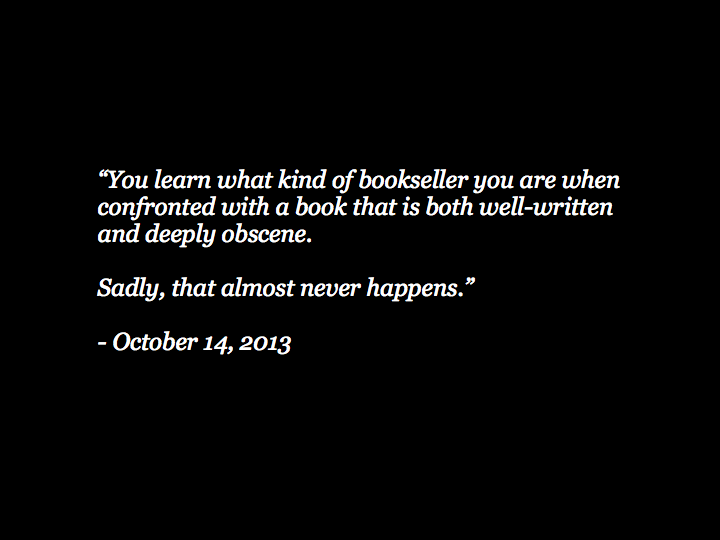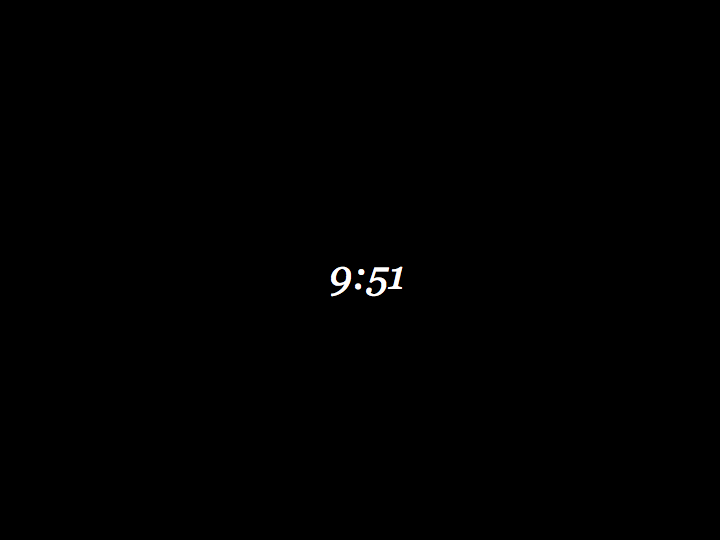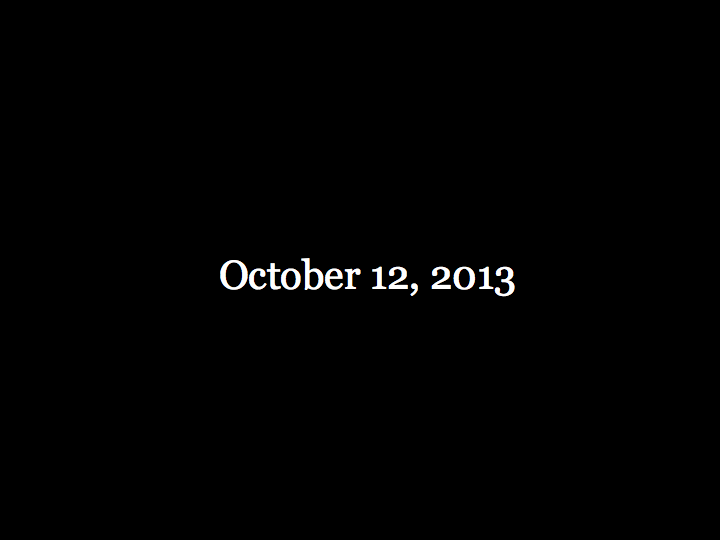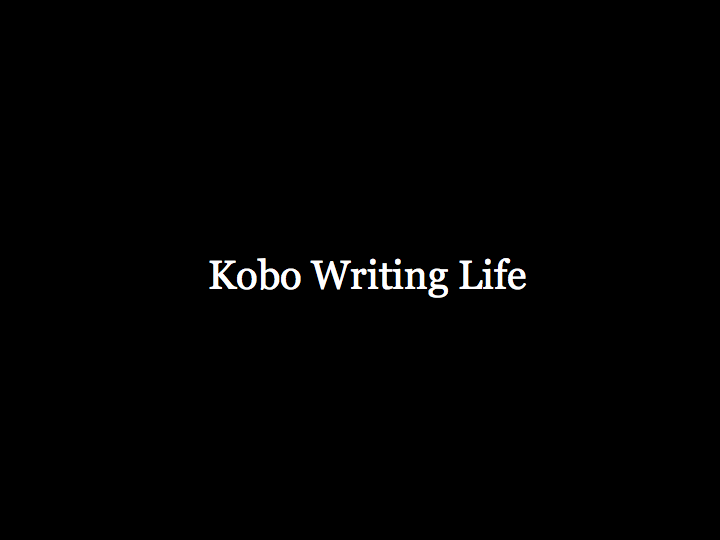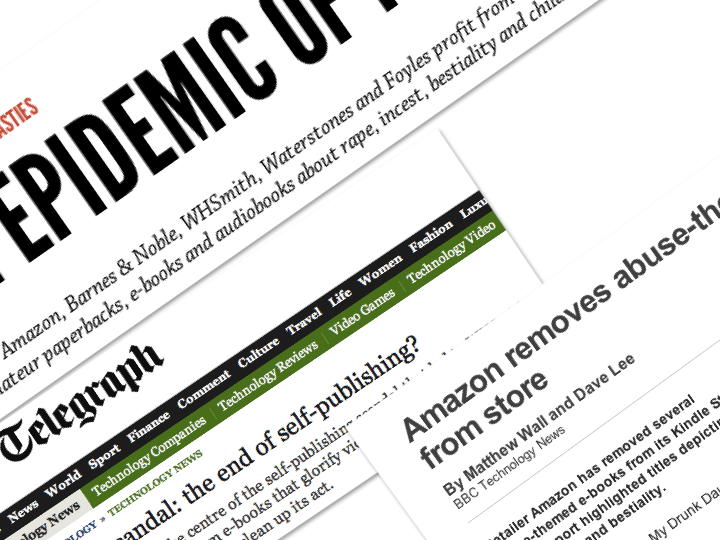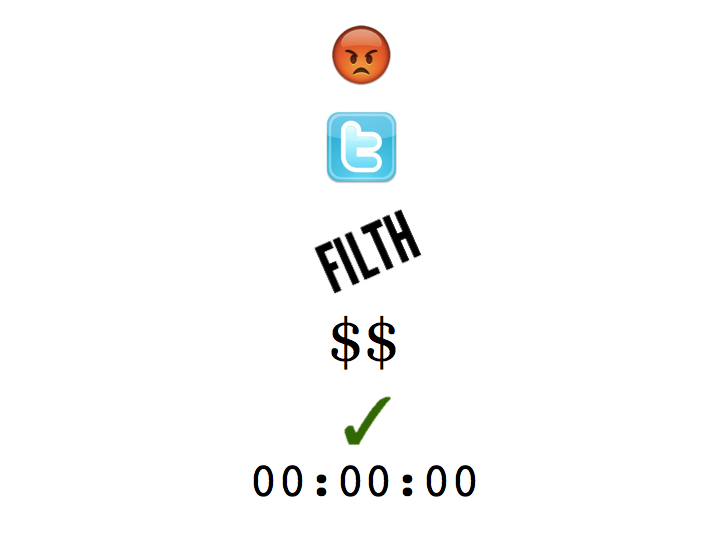Infinite Shades of Grey: Censorship, Scandal and the Promise and Peril of Self-Publishing
Presented at the FutureBook Conference, London, UK
"You learn what kind of bookseller you are when confronted with a book that is both well-written and deeply obscene. Sadly, that almost never happens." - October 14, 2013
"Is it bestiality if he turns from a dolphin into a human while they're having sex?" - October 14, 2013
[I’m Michael Tamblyn, Chief Content Officer of Kobo. This is a long story and I have a short time to tell it all, so think of this as a haiku about self-publishing, its risks and rewards.
In some ways, the idea of self-publishing is like a dream. The ability to write your book, easily distribute it through retailers who are willing to make enormous investments in search and recommendations to help people find it, and reach an audience of millions of people who not only love to read but have declared that they are willing to pay to do so. It’s magic, really. It's like some alternate reality version of the internet where writers actually get paid for writing. But it's real. With real authors selling hundreds of thousands of copies. it is a major business for Kobo, with Kobo Writing Life authors representing 10-11% of unit sales globally and all self-published titles, including various aggregators representing 15% or more.
On October 12th, Kobo had a significant catalogue of self-published titles in the UK. Tens of thousands of authors and hundreds of thousands of titles, a thriving part of our UK business.
On October 14th, we had zero self-published titles available in the UK from zero authors and our 300-year-old retail partner had suspended their web presence.
Nine days later, it was back again. Almost all of it. What happened in between is part business case, part computer-science problem, an exploration of the challenges of gate-keeping vs. technological empowerment, curation vs. censorship. But really it’s about what it means to be a retailer, when a retailer is also a publisher, also a distributor, and all books are digital.
Our self-publishing catalog is made up of hundreds of thousands of titles.
It's mostly fiction.
Of that fiction, much is romance.
Of that romance, some we have come to call "active romance".
Kobo, like all retailers with a self-publishing arm, has a Terms of Use agreement for content that restricts the illegal and some topics that if not illegal, we don't especially want in the store. Some authors, and some publishers using the self-publishing service, decided to ignore them.
When they do that, this is what happens.
The result was, starting sometime on October we started to play something that seemed at times like the world’s least pleasant literary video game. It’s called “Eroticagate” and it starts like this.
#1. You have several million titles.
#2. An unknown number of them contain sexual content, suggestive words or adult themes.
#3. Of those, a much much smaller number have sexual content that is against your Terms of Use.
4. For both 2 and 3, some are well-labeled and categorized. Some are not.
Some are covered with highly descriptive keywords. Some are not. Some are mistakenly put into categories they shouldn't be by inexperienced authors not familiar with subject codes. Some are intentionally put there to boost search results and the possibility of discovery.
All of the books that breach your terms are self-published. But some are publishers who are using author tools. And if you dig further, who knows what else you’ll find from publishers large and small.
And this is how you play:
If you remove all titles, you don't have a business.
If you remove any titles, some people will consider you a censor.
If you remove all titles with sexual content, you are a censor.
If you don't remove the smaller number that contravene your Terms of Use, bad PR and damage to your brand continues.
Every book you remove creates an angry author.
Every author you remove has a Twitter account.
Every journalist wants to find the worst title possible.
Authors of contravening content have every economic incentive to try and get their titles back up any way they can, resubmitting blocked books with new titles, submitting books with innocuous titles and then changing them afterwards.
And even so, fundamentally, you believe that erotica and sexual content should be available.
And there is a time limit. Until you have found everything that shouldn't be there, your partner's site stays down because they are a deeply beloved, respectable, publicly traded 300-year-old high street retailer.
You don’t really win, you only don’t lose. And only to the extent you learn from it.
Begin.
Trying to answer all of those questions and deal with all of those constraints is how you end up with self-published titles removed from our catalogue for nine days.
Because you quickly realize that to change from allowing everything to allowing "anything other than everything" is a leap of both incredible difficulty and ethical hazard.
This is a digital business, right? It should be easier with computers. But trying to automate a search like this is very difficult. It casts a net too wide and screen out books that don't have anything to do with erotica or adult books that we don't have a problem with.
Regardless of how it gets done, this becomes about making choices and enacting them. It has to be an act of curation. But can one ever curate a four million title database? Is it folly to think that you could? But at some point, if the answer is anything other than allowing everything , someone has to decide. The decision may be based on a book jacket or a title. It may be on the structure of an algorithm and what it catches. Or based on the content itself. Or all of the above. And it touches every single book.
You instantly find that you are working with nearly infinite shades of grey. A hundred thousand nuanced decisions. And it's grey because some authors want to walk as close to the line as possible. They take pride or find commercial reward or see artistic merit in doing so.
And every decision has two kinds of risk. Let the wrong book pass and you have the risk of alienating customers or bad press or breaking the law... But also the other risk, the greater danger, the possibility, however vanishingly small, that the book you are filtering out is the next Tropic of Cancer or Justine or Lolita.
And over all of it, the fear that, using words like "brand risk" and "community standards", you could take on the smooth and reasonable tone of the censor.
(Although, I think it's fair to say that if Nabokov had decided to call it "Barely Legal Step-Daughter Fantasies, Vol 4" instead of Lolita, he might have had a harder time of it.
Publishers historically have no problem saying no to books. Bricks-and-mortar retailers too. It’s tradition. The time-honoured role of the gatekeeper. Never enough shelves. Only so many books that can be published. Lots of perfectly good reasons to say no.
But self-publishing is different. The natural promise of self-publishing is "yes, everything". Whatever you can imagine. Whatever your story is. Whatever you think could be shared. However good or bad or tin-foil-hat-crazy or non-traditional or deviant or artistically groundbreaking. That's part of the dream. And every book removed feels like a small step away from that, even if for the best of reasons. Even to the title that makes you lose your faith in humanity or throw up in your mouth.
At one point, we had people in half a dozen countries working around the clock trying to get books back in as fast as possible. A hundred bizarre conversations. Is it bestiality if it's sex with a shape shifter? What if both participants are supernatural? What is the age of consent in each territory we sell in? Does it matter if the character is in a coma and everything that takes place is happening in a dream? Is this book in or out? Over and over.
And so over the course of a few days, most books were restored to the catalog. Almost everything. But not absolutely everything. Some were clearly against our guidelines. Worse, some were perfectly fine, but tangled up in collections of other books requiring one-at-a-time manual review. No books were ever removed from user's libraries, but a relatively small number of titles were removed from sale.
Most authors were understanding. Some were angry. Some were loud. And they should be. In the physical world, to make a book go away is a big deal -- you have to burn it or seize it at the border or confiscate if from a shop in a public, visual, galvanizing spectacle. But to de-list, to deactivate, to change a one to a zero, is silent and banal. We should be loud and we should ask why. Authors should give us and every other ebook retailer a hard time when it happens. Because it is so so so much easier now to make something disappear.
We are immensely relieved that self-published books are back in our UK catalog. There is still lots of work going on, lots of work still to be done -- safe searching, inbound filtering, review, conversations with vendors, outreach to authors.
And we have grown up a bit. When the answer is anything other than “we carry everything”, you have to take a hard look at the kind of bookseller you want to be. What it means to have that role. And we have decided that the right place for us is probably right at the point where it no longer feels comfortable. With a clear view to the edge of the line. And we will shift that line and evolve it.
Authors will push us, will challenge boundaries, will go as far as they can go. And they should. And we will continue to grow into our role of curator. Every ebook retailer now has to wrestle with this. I’m here because we are willing to do some of it out loud, to acknowledge that choices are always being made, and be thoughtful about what they mean. And we will wrestle with the danger and significance of saying “No.” And push always for, and appreciate the power and promise of saying “Yes”.
